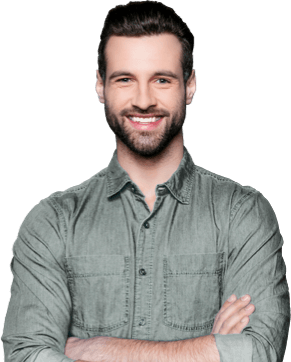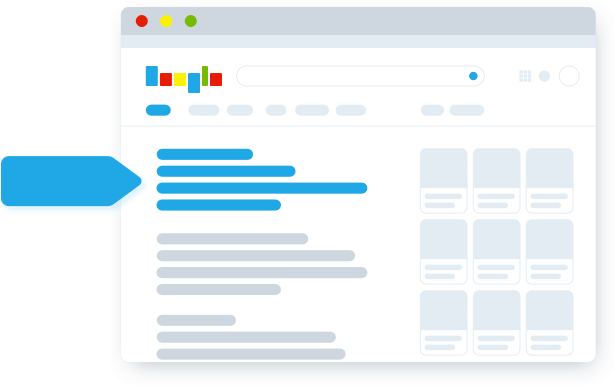NATIONAL SEO SERVICES
DONE RIGHT- Custom Nationwide SEO Campaigns
- Win Nationally in Tough Markets
- Data-Driven Organic Growth
- Full-Service SEO Execution
- Results-Centered SEO Partnerships
GET YOUR FREE PLAN
The way they pitch their services is exactly what you get. Great to work with [Searchbloom].
Bottom line is, unlike most other SEO companies, they set goals expectations and do what they say they are going to do… The way they pitch their services is exactly what you end up getting. Great to work with.
National SEO Services
Bottom-Line Results
Can you imagine generating leads every day and not having to pay for each one individually? This is what a national SEO agency does (or should be) doing for you.
Searchbloom’s national SEO partners experience this daily, and you can too! Our National SEO company incorporates tried and true SEO strategies that can massively impact your traffic and lead volume. Consider how you got to this page? Did you search google for “national seo services” and did we come up on the first page of Google? The same thing can happen for you.
If your business operates nationwide, you already know how difficult it can be to stand out online. It is that reason why SEO experts like Searchbloom exist.
Not only are you competing with local businesses, but you are also competing with big brands on a national level. SEO campaigns are multi-faceted and require diligent work input in order to get the desired outputs.

Trying to appeal to such a massive and varied market can feel like an enormous task. It takes a lot of work and a team of highly skilled experts with many years of experience to create successful national SEO strategy.
Searchbloom will create a custom national SEO campaign that will move your brand to the top of the search engines and bring more relevant visitors to your site. If you’re a brand that provides products or services nationwide, a robust national SEO campaign should be a part of your overall digital marketing strategy.
Executing National SEO strategies can be a challenging task and requires an ongoing commitment. With national search engine optimization, instead of targeting a narrow set of local geographical keywords, your aim may be to rank for highly searched keywords that can be very competitive. The competition to rank for these types of commercial search terms can be challenging to beat. With Searchbloom on your side, your campaign is set up to be successful from the beginning.
So if SEO for national businesses is challenging, is it worth it?
In a word, Yes! While it can be challenging to build successful national SEO campaign, by partnering with Searchbloom, we make sure the results are well worth the effort and resources.
There are currently 3.5 billion daily searches on Google, and around 60% of national web traffic comes from organic search. Plus, more than 60% of web users research their product information online before buying, and over 90% of clicks go to organic (rather than paid) listings.
Searchbloom’s Award-Winning search engine optimization services will help you ‘crack the code’ and harness high-converting organic traffic. Can you imagine getting predictable traffic to your site without paying per click? A correctly implemented national SEO campaign can increase your brand awareness, online lead generation, and most importantly, improve your revenue. It’s not just about writing meta descriptions or title tags anymore!
Ensuring you, our partners, a return on your SEO investment is our number one goal.
If you are ready to scale organic search
Here are some things you absolutely need to know…
What is National SEO?
A Worthwhile Effort
National SEO is an organic search marketing strategy that focuses on promoting your business’s website to rank for broad highly-searched keyword terms nationwide or at a national level. The ideal result is your site ranks at the top of the search results when someone types one of these keywords into a search engine.
So what’s the catch? If there is a catch, it would be that higher monthly keyword search volume means national SEO efforts see significant competition. That means it can be harder (but more lucrative) to rank for these keywords. Searchbloom has developed a proven, systematic approach that delivers predictable search engine optimization results.


At this point, you may be contemplating, “Is National SEO right for me?”
We’ll answer that question with another question: Does your company need more inbound leads?
The primary difference between national SEO and other SEO campaign types like Ecommerce SEO or Local SEO is whether the purpose of your website is to generate leads vs. sell products online and the geographic target. Our National SEO campaigns are ideal for brands who want a nationwide digital presence and need to increase their sales pipeline.
If your product or service is available nationwide, national SEO is the right campaign for you.
Why National SEO?
There are many reasons why companies focus on a national SEO strategy.
If your business is purely online and you don’t have a physical location, you’ll likely have no geographical area to target. To that end, you’re not only competing with companies in your area; you’re also competing with corporations that may be on the other side of the country. Gaining search market share can be a cost-effective way to generate leads predictably and fill your sales team pipeline with high-quality inbound opportunities asking for your product or service. As a part of your marketing team, we can work directly with your team to ensure we’re hitting your targets.
What is E.E.A.T.?
E.E.A.T. is an acronym developed by Google to help webmasters and SEO’s understand what their algorithm looks for when determining a website’s rankings. Google has explained it as your brand’s Experience, Expertise, Authoritativeness, & Trust. National search queries serve many informational results (like blogs, publications, and databases); it can be challenging to stand out without a trusted brand. A national SEO campaign with Searchbloom will help you build your online reputation by getting in front of your target audience at the right time.
Here is the bottom line: If you want to get a leg up on your competition, widen your reach, increase the visibility of your brand, generate more qualified leads, and most importantly, increase your revenue, a national SEO campaign with Searchbloom is right for you. Our analysts regularly collaborate with primary stakeholders on your team to ensure your SEO campaign is delivering results. Analysts continuously monitor the efficacy of your campaign to ensure that we’re keeping the Searchbloom Promise.
Our National SEO Services Partners





ROI Driven National SEO
Services that Pack a Punch
Investing in national SEO helps prospective customers find your business. The campaign drives relevant, commercial traffic to your website, and enables your business to establish a nationwide search presence. We help businesses like yours achieve this goal by analyzing your existing website and online marketing strategy and making improvements or ‘optimizations’ in three key areas. We call these three areas the three pillars of SEO. Searchbloom will use our proven formula, The A.R.T. of SEO , which further defined below:
How does a search engine know that you’re running a genuine business and provide value to customers and users? Inbound links are the key, which is how algorithms determine the authority of your site. When other sites link to yours, it shows algorithms that they value your content. Similar to an election, each link is like a ‘vote.’ However, the quality of the vote is just as integral as the quantity. These votes of confidence are particularly valuable when they come from influential, high-authority sites. Searchbloom exclusively focuses our outreach for link acquisition strategy on high authority sites to help your national SEO rankings.
Though search engines are the creation of humans, they are not powered by them (and they can’t read your mind either). It’s essential to make it crystal clear what your site and its pages are about and what services and products you’re offering. Optimizing a web page for relevancy makes it easier for a search engine to understand what your business is all about. If you can show algorithms that your webpage is relevant, qualified, and an authority in your niche or industry, you’ll be rewarded with high rankings nationwide on the search engine results page (SERPs).
National SEO is not all about keywords and rankings. It’s also about making sure the foundation of your website is sound. For example, the structure of your site needs to be optimized to deliver a fantastic user experience with fast load times, mobile optimization, and secure user data. If you were a search engine, would you reward a webpage with top rankings if it was not responsive to mobile devices, had broken links, or took a long time to load? I think we would all agree that the answer is no. Because of this, optimizing your website’s technology or ‘tech stack’ is crucial for National SEO success.
Optimizing your website and it’s pages for these three critical factors is the foundation of Searchbloom’s national
SEO strategy. Don’t just take our word for it; keep reading below to find out what our partners have to say.
All-Inclusive Technical Website Optimization
Before working to increase traffic to your website by link building, creating new fresh content, and SEO strategies, it’s vital to make sure that you have a site and its pages optimized for mobile, user experience, and robots.
Well-built sites can often be tweaked to make
them more optimized for national SEO, user
experience, conversion rate, and retention.
We rarely come across websites that we refer
to as ‘well-built’ so in some cases, it can be
better to start from scratch with a new website.
Especially if you don’t currently have a site
optimized for mobile devices.
Using keywords in your URL structure and proper
information architecture can help algorithms
understand your site using less resources. URL’s should
ideally be short, siloed, readable, and you should
avoid excessive parameters and referral codes.
Another feature of websites optimized for national SEO
is properly using structured data, including Schema.org
markup, to provide relevant data to Google and other
search engines. By incorporating this additional
information within your site, you have the opportunity
to show rich snippets in the SERP’s such as a star rating,
a publication date, and many other opportunities that can
make your listing more relevant and helpful to web users.
Site speed is one of the most important aspects when we begin optimizing websites in a national SEO campaign. A slow site or page is not only frustrating for users, but search engines also monitor site speed scores, and it negatively impacts your organic search rankings. It is imperative that both your mobile and desktop versions of your site loads and efficiently.
Forensic Keyword Research + Thematically Keyword Mapping
The internet is continuously growing, evolving, and search engines change their algorithms regularly – Google makes changes to their algorithm up to 600 times each year, and we suggest Google algorithm changes happen even more frequently!
Because the web is continually changing, it’s vital to review your national SEO strategy regularly to make sure it’s still achieving your goals. An on-page and relevancy SEO audit assesses how well your site is doing at that moment, and what we can improve to keep your website performing optimally. Keyword research is not a one-time action item but instead, keyword research should be revisited on a regular basis to determine if these are still accurate targets based on keyword research trends.

National SEO revolves around strategy, both the short term and the long term. It can be tricky knowing where to start when you’re trying to rank for a broad, highly competitive national keyword as it’s such a daunting task.
Without a strategic plan and roadmap in place, including regular SEO audits, national SEO strategies can be fruitless or ineffective and can end up costing a lot of money with lackluster results.
We follow a tried and true keyword research and keyword mapping strategy to find and target keywords that offer the highest potential for ranking success.
Rather than blindly going through a long list of keywords that may be relevant to your industry, our forensic keyword research approach starts with identifying ‘head terms’ with a large amount of search volume.
We then map these keywords to specific pages and also come up with many long-tail keywords that are related to the main trophy keyword or head term.
Focusing on these closely related keywords shows Google and other search engines that a particular page on your website is relevant both for its primary keyword and for related long-tail terms.
“Bottom line is, unlike most other national SEO companies, they set goals expectations and do what they say they are going to do… The way they pitch their services is exactly what you end up getting. Great to work with.”
- Sean Harcum, Director of Marketing

On-Page Relevance Optimization
Content is still and will always be king, Google’s algorithm updates consistently mean that it’s more important than ever to publish quality content.

Taking great lengths to ensure all of your pages have optimized headings, meta titles, meta descriptions, body copy, and image tags based on targeted keywords ensures the relevancy of your national SEO campaign and increases its likelihood of success.
Our carefully-considered national SEO content strategy includes regularly updating your site with fresh, high-quality content that improves your relevancy authority, user’s experience, and your rankings.
Your website copy should be more than a convenient place to insert keywords. Quality content offers real value to the reader, promotes social sharing, and grows the authority and presence of your brand. High-quality content will encourage your site’s visitors to spend more time-on-page and establish your brand as a national leader and authority in your industry. The best national SEO agency in the world could still fail if the SEO agency doesn’t target keywords that drive qualified leads.
Publishing on your blog regularly with optimized content is a great way to reach new customers, provide value for existing customers, and establish yourself as an authority in your industry. Our ongoing blog strategies provide a clear path of where to focus your content efforts to get the highest ROI.
Outreach for Off-Page Authority
You can only get so far by optimizing the structure and content of your site. An effective SEO strategy also looks outside of your domain to consider how you can increase the quality and quantity of inbound links pointing at your pages.
Link building and acquisition is one highly effective way to build authority to your website. Outreach involves “reaching out” to other sites, blogs, and online publications to ask them to link back to valuable content on your website. However, to do this correctly and ethically, it takes a significant amount of time and resources.
Unfortunately, the practice obtaining links or ‘link-building’ has earned itself a bit of a bad reputation from the early days of SEO when site owners and SEO companies would build hundreds of low-quality spam links. Our modern link building strategies bucks that old stereotype and follows Google’s recommended guidelines.
Instead of focusing on link volume, we center our efforts on the acquisition of high-quality, natural, inbound links. Link building via outreach not only builds authority for SEO purposes but also helps you to reach a wider audience and grow brand awareness.
Have questions? Take a look at our National SEO frequently asked questions below…
National SEO
Frequently Asked Questions
National brands and websites selling products or services can all benefit from a national SEO campaign. Also, informational sites, like blogs or news website, can also gain more online visibility with a national SEO agency.
A national SEO company can help companies increase their brand awareness, drive more qualified traffic to their site, and keep up/stay ahead of their online competition.
If you are looking to obtain a wider audience, sell more products online, or increase revenue generated from your online efforts, national SEO may be the solution.
Google is always looking for the freshest, most value-laden content to rank. Developing a regular plan to create content – and to refresh the content already on your website – is an essential part of national SEO.
Yes and no.
As previously mentioned, the common perception of linking is that they’re like a democratic vote. The more “votes” or links you have, the better you’ll rank. This is only partially true.
Google’s 2012 Penguin Update targeted and punished spammy link practices, and ushered in a new era of link building that focuses on quality and value.
So you do want more links, but you want them to be high-quality links from trustworthy websites. And that’s where we can help.
YES! In 2018 Google officially announced that Mobile-First Indexing would be the new norm moving forward. That means your ranking is tied more to your mobile site than your desktop.
If you want to rank well nationwide, you need to have a mobile site. No exceptions.
Again, this is a yes and no answer.
High volume keywords typically have more competition, which means they’re hard to rank for – and even harder to keep.
That’s why we recommend trying to rank for high- and low-volume keywords. You’ll build authority and traffic on your site with smaller wins, which makes it easier to win and keep higher-volume searches later on.
It’s always recommended to have a Google Business Profile Page, with very few exceptions.
Even if you don’t have a physical location, a Google Business Profile Pages will help you ensure that your name, web address, and phone number (called NAP) are consistent – which contributes to SEO. You can also use it to get reviews, which again help your national SEO and conversion rates.
Yes. Just because you’re a national brand doesn’t mean you can ignore location-oriented SEO (or local SEO).
Many national brands still need to compete on a local level, and optimizing your website for certain locations can be a helpful way to increase traffic, revenue, and your search engine ranking.







